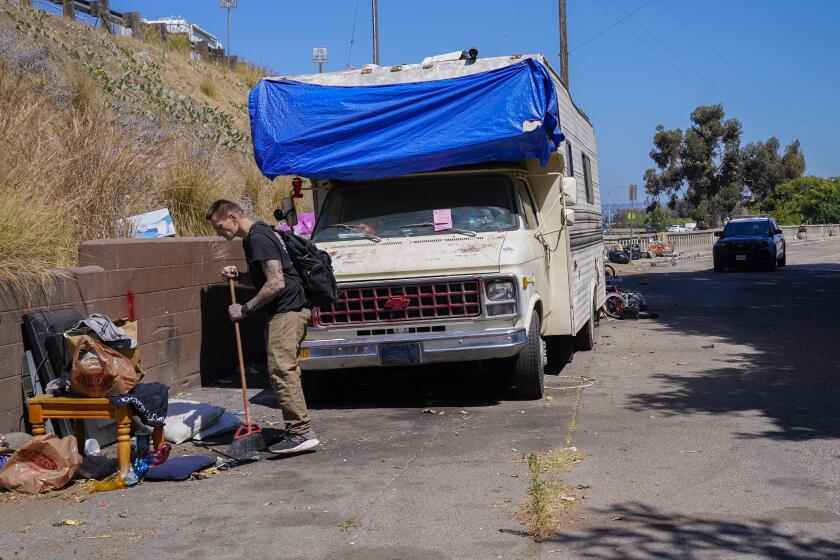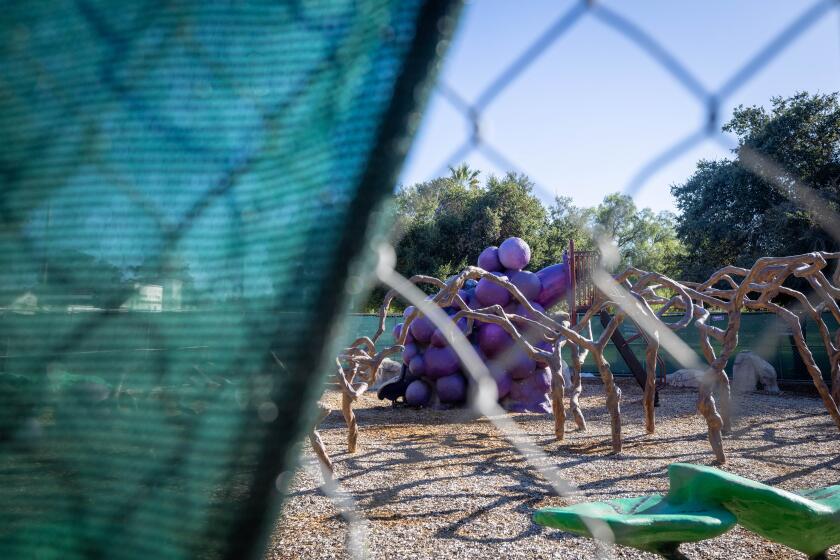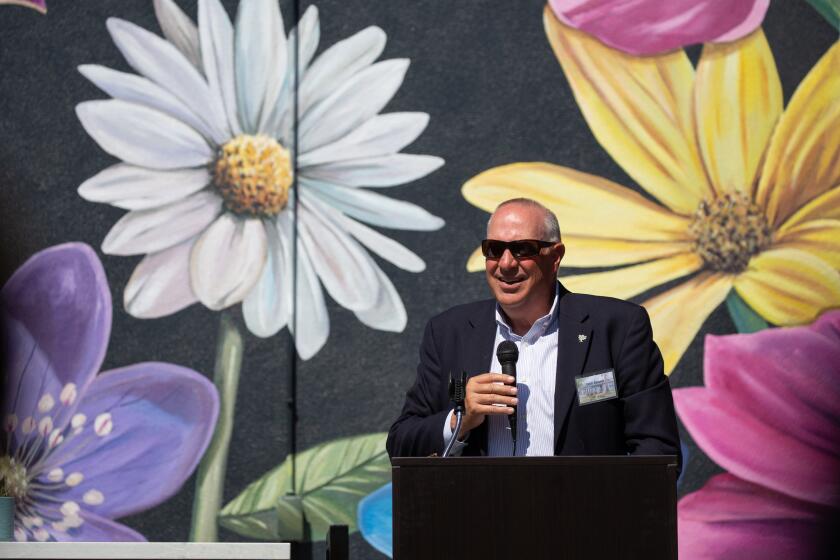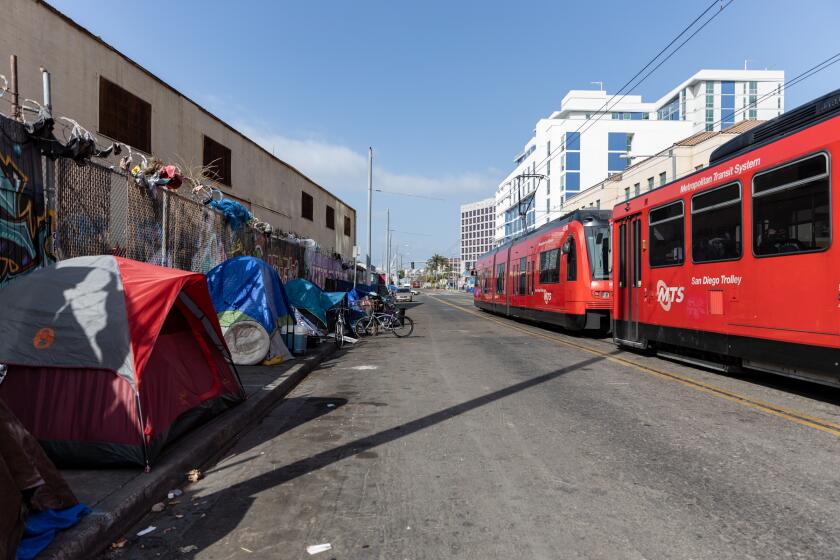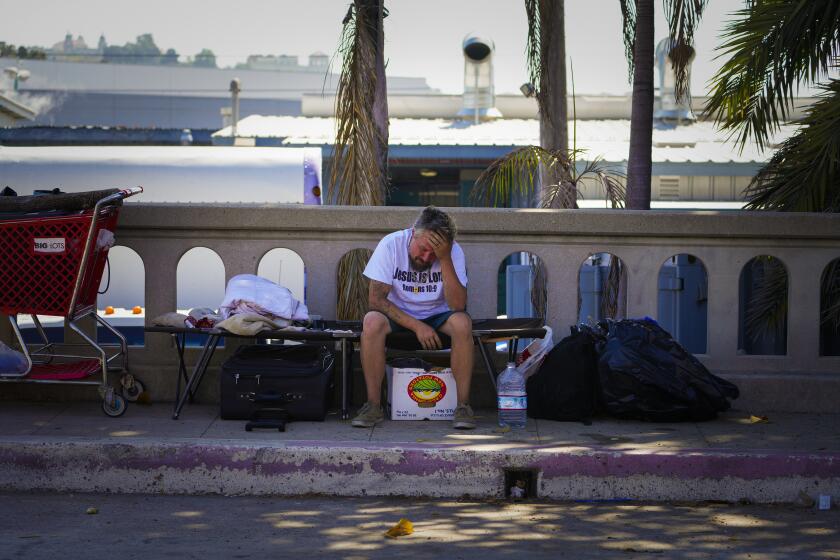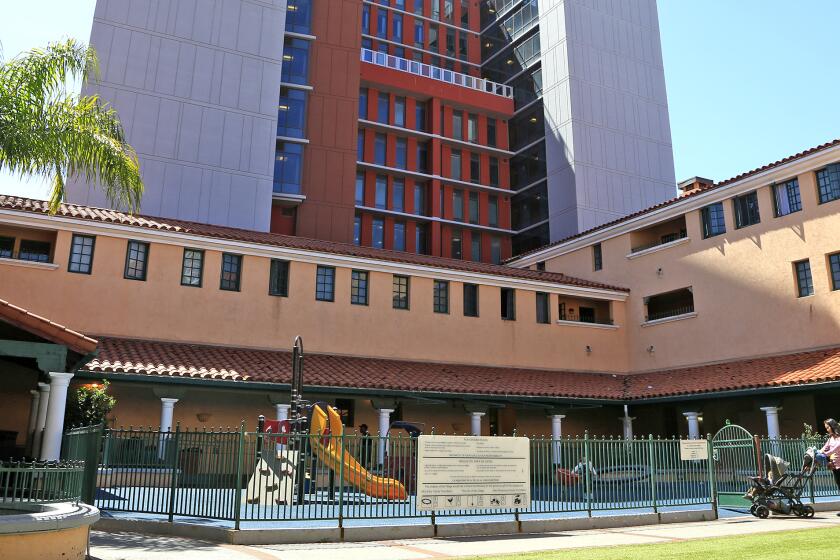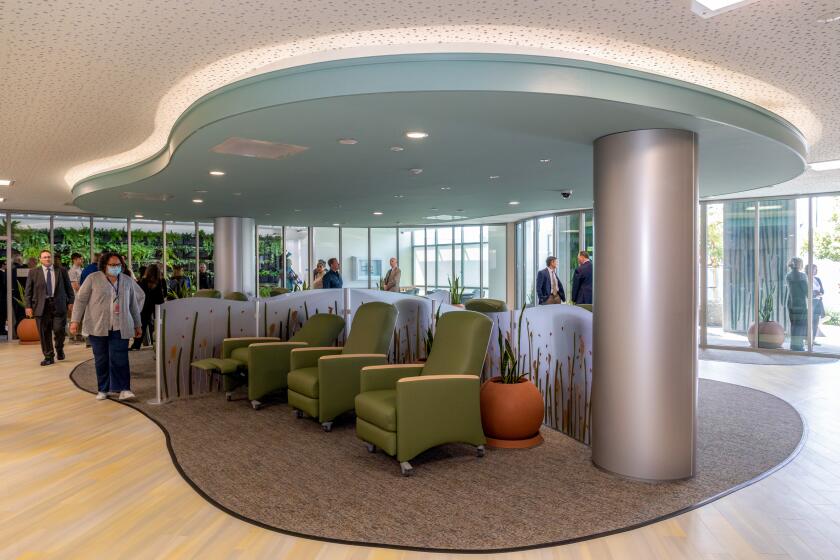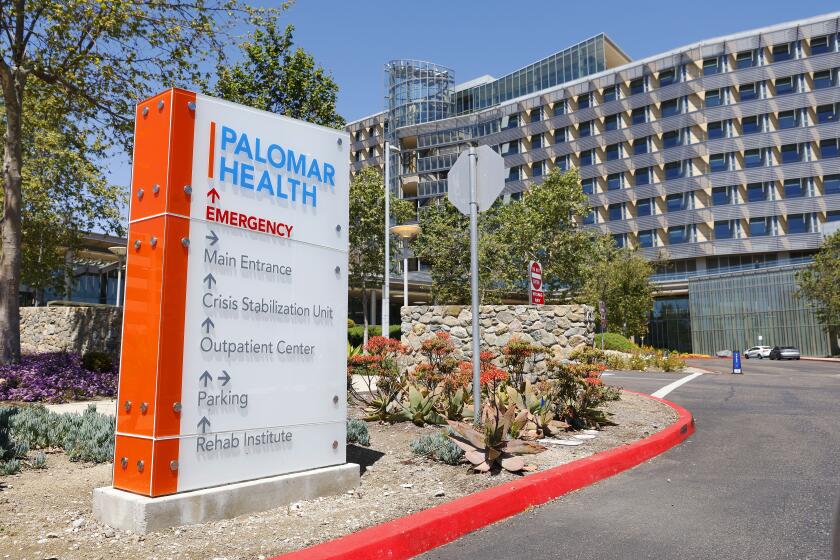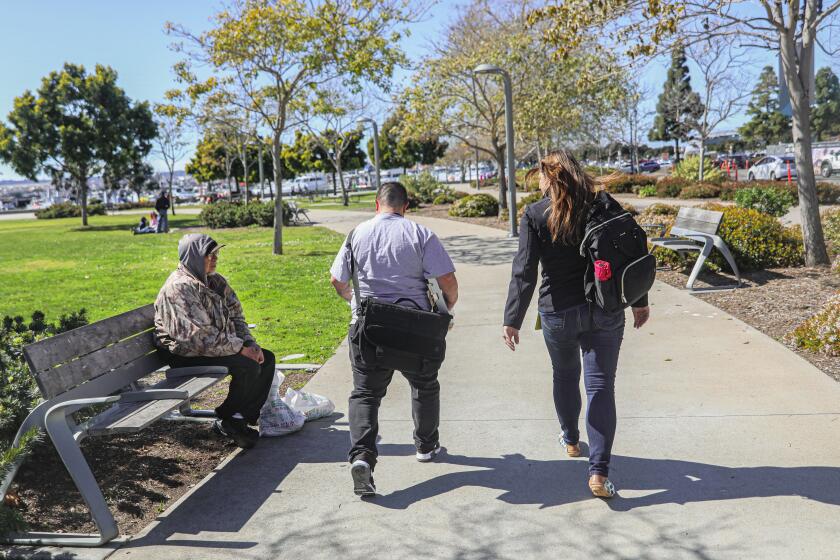In San Diego, Newsom proposes bond to house, treat people with mental illness
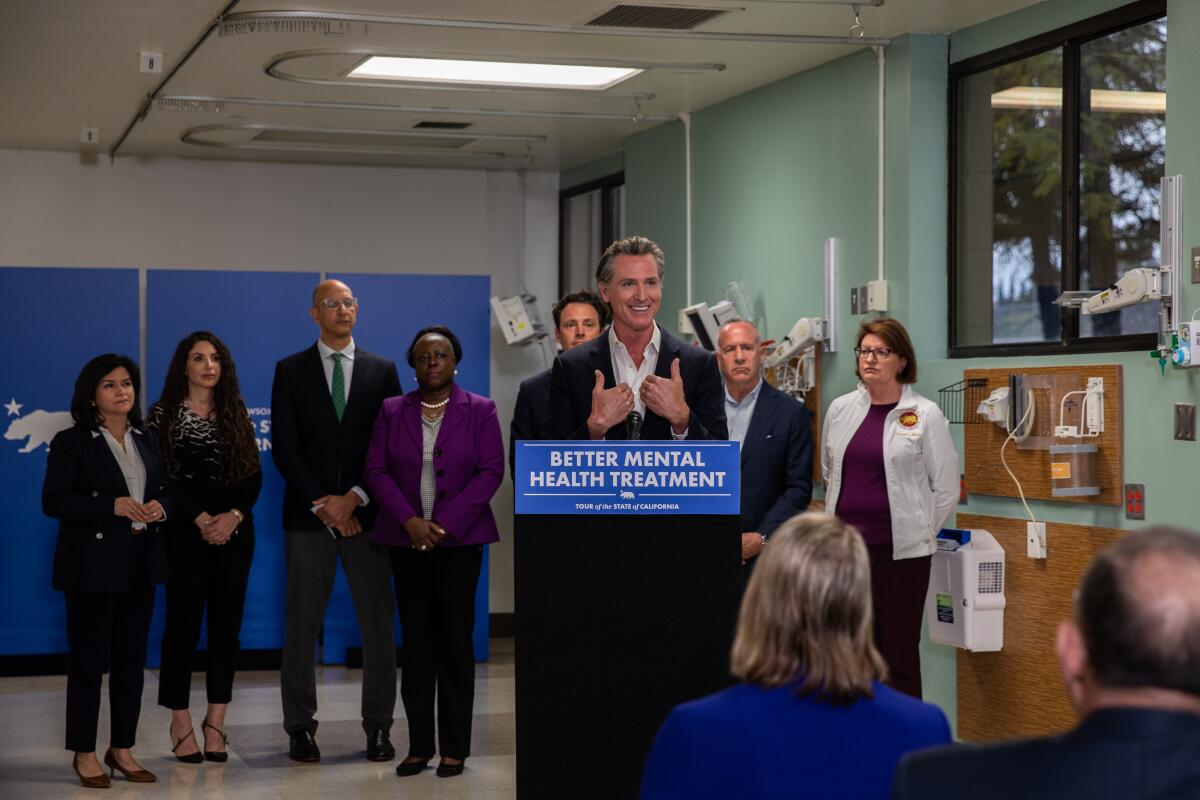
The governor announced the bond initiative Sunday at Alvarado Hospital in San Diego. He also announced $97 million in the proposed state budget will go to fight fentanyl and opioid abuse.
Gov. Gavin Newsom is proposing a bond measure that would raise billions of dollars to house and treat thousands of people with mental health disorders if passed next year.
“It’s unacceptable what we’re dealing with, at scale now, in the state of California,” Newsom said at a Sunday afternoon news conference at Alvarado Hospital Medical Center in San Diego, the Democratic governor’s latest stop during his statewide tour instead of making a traditional State of the State address to lawmakers.
The proposed multifaceted effort would focus on homeless mentally ill people on the street, but also would help people suffering alone in their homes, he said.
The proposed bond would go before voters in November 2024 and could raise between $3 billion and $5 billion to create more than 6,000 beds of various types to serve people with mental health issues. Facilities would be funded from $1 billion that would be diverted annually from a tax on top earners created by Proposition 63 in 2004 to fund mental health services.
Newsom also proposes amending the 20-year-old Mental Health Services Act to allow funds to be used to help people who solely have substance use disorders. The act now funds substance use disorder only if it occurs with other issues.
Sacramento Mayor Darrell Steinberg, who authored both Proposition 63 and the Mental Health Services Act, was among the speakers who joined Newsom on Sunday and said he supported the proposal.
Newsom and Steinberg said the proposals would address issues that date back to what they described as a well-intended Lanterman-Petris-Short Act of 1967, which led to the closure of large state mental hospitals, and a 1975 Supreme Court decision that ruled people cannot be held against their will solely because of their mental health.
The large mental hospitals were expected to be replaced by smaller community-based clinics, which were never funded.
“This idea is half a century overdue in the State of California,” Newsom said. “It’s time to fulfill the vision that was laid out in the early and late ‘60s.”
The bond would fund the creation of three types of housing. One would be a residential campus-style setting where multiple people would live, attend groups, recover and work to stabilize their lives with a number of on-site support services.
Another type of housing would be in a smaller cottage setting where residents could access services that exist on-site or in the community.
A third model would be permanent supportive housing and scattered site housing at even smaller settings to integrate individuals into the community and provide long-term housing stability.
The bond also would fund more housing for homeless veterans with mental issues.
Steinberg said the “elephant in the room” is that there has not been enough focus on using Mental Health Services Act funds to help homeless mentally ill people on the street.
“The reason why people aren’t focused on encampments with MHSA dollars enough is because it’s really hard,” he said, calling for homeless services to be a priority.
The governor was joined by state Sen. Susan Eggman, D-Stockton, who has proposed a bill that could lead to mandated treatment or conservatorships for people with serious mental health issues.
Andy Imparato, executive director of Disability Rights California, said more money for mental health housing is a good thing and that Newsom’s announcement seemed to largely bring welcome news.
While an integral part of Newsom’s overhaul effort would be to strengthen accountability and transparency around access, quality and spending of county behavioral health and Medi-Cal plans, Imparato said concerns remained over how some counties spend Proposition 63 funding. He wants to make sure that the money for new housing isn’t pulled from other treatment services.
Following Newsom’s announcement at Alvarado Hospital, the governor toured a California National Guard facility on the U.S.-Mexico border and announced additional state funding to address the fentanyl and opioid crisis.
His proposed 2023-24 budget will include $97 million in new investments aimed at the issue. New money includes $79 million for distribution of naloxone, an overdose medication commonly known by the brand name Narcan.
Another $10 million would go for grants for education, testing, recovery and support services, $4 million would fund test strips to identify drugs and $3.5 million would fund overdose medication at all middle and high schools.
The budget also would include $30 million to expand the California National Guard’s work to prevent drug-trafficking transnational criminal organizations.
Newsom’s visit to San Diego was part of his tour of the state to launch his political agenda for his second term in office.
The governor unveiled an ambitious goal in Sacramento to reduce homelessness that included funding for 1,200 small homes statewide, traveled to San Quentin to announce the transformation of the maximum-security prison into a rehabilitation center and touted a new contract in Downey to produce low-cost insulin under a state label.
Newsom will travel Monday to Imperial County to discuss how California is poised to become a global leader in electric vehicles and clean energy, his office said.
The Los Angeles Times and The Associated Press contributed to this report.
Get Essential San Diego, weekday mornings
Get top headlines from the Union-Tribune in your inbox weekday mornings, including top news, local, sports, business, entertainment and opinion.
You may occasionally receive promotional content from the San Diego Union-Tribune.

